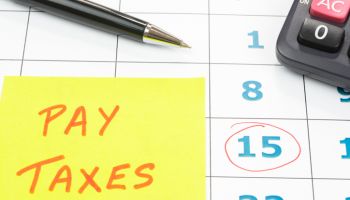Date: Wednesday, February 17, 2010, 6:59 am
By: Tonyaa Weathersbee, BlackAmericaWeb.com
As if black men need another reason to fight the urge to become loyal customers of the criminal justice system, here comes another one – via the 2010 census.
Seems that the criminal acts that far too many of them commit – acts that diminish themselves and their communities – are, at least indirectly, enriching and empowering places where people would just as soon shoot them as look at them.
According to a recent National Public Radio report, a battle is brewing in upstate New York over how prisoners are being counted in the census. Apparently rural, mostly-white areas where new prisons have been built to accommodate the United States’ status as the world’s biggest jailer are counting inmates as part of their local population.
For those sparsely-populated areas, being able to include prisoners, nearly half of whom tend to be black and male, inflates their local population numbers.
It means more money for schools, roads and other services for the people who live there. And it means zilch for the people living in the struggling, urban areas from where many of those prisoners hail.
Worse than that, it means more political representation for those communities. That means more power for people who are likely to have little empathy for civil rights or economic justice issues – or any of the policy fixes that could deter many of those inmates from choosing a life of crime.
For their part, supporters of counting inmates as local residents say it’s only fair. They say that it costs money to house, clothe and feed prisoners, and that the community ought to get something back for taking such security risks.
But opponents such as the Rev. Al Sharpton say it’s pure exploitation to take a group of disenfranchised people – many of whom are locked up for non-violent drug crimes – and benefit from them being voiceless.
I agree with Rev. Al.
There’s something inherently unjust in this. There’s something inherently wrong with locking up people, many of whom sold or possessed drugs in communities where the drug trade has replaced most legitimate work, and using the joblessness and desperation that feeds that culture to create opportunities that they need, but will never have access to.
Yet at the same time, the fact that these rural, mostly-Republican communities are looking to benefit politically from counting prisoners in the census is another lesson that counselors and mentors who work with wayward black youths should seize upon.
They should seize upon it because many of those youths still believe that their power lies in using a gun, or commanding a drug corner, or embarking on shallow pursuits of respect and money.
Those counselors and mentors should use this latest lesson to stir righteous anger in them; the kind that overwhelms the misguided rage and confusion that oftentimes leads them to commit crimes.
They should tell them that when they rob someone, or get caught selling drugs, or worse, kill someone, their wasted lives become pay dirt for people who care the least for them.
They should tell them that if they’re angry about not being able to find a job, they ought to be even angrier at themselves if they commit a crime and create a job for the very same people who turn a blind eye to their pain – and give them more political power to vote for lawmakers who win campaigns by demonizing them.
But most of all, the counselors need to help these youths see that when they resort to criminality and are incarcerated, they hurt their communities by weakening their political muscle. That gives those black communities less of a voice to fix the problems behind …..















